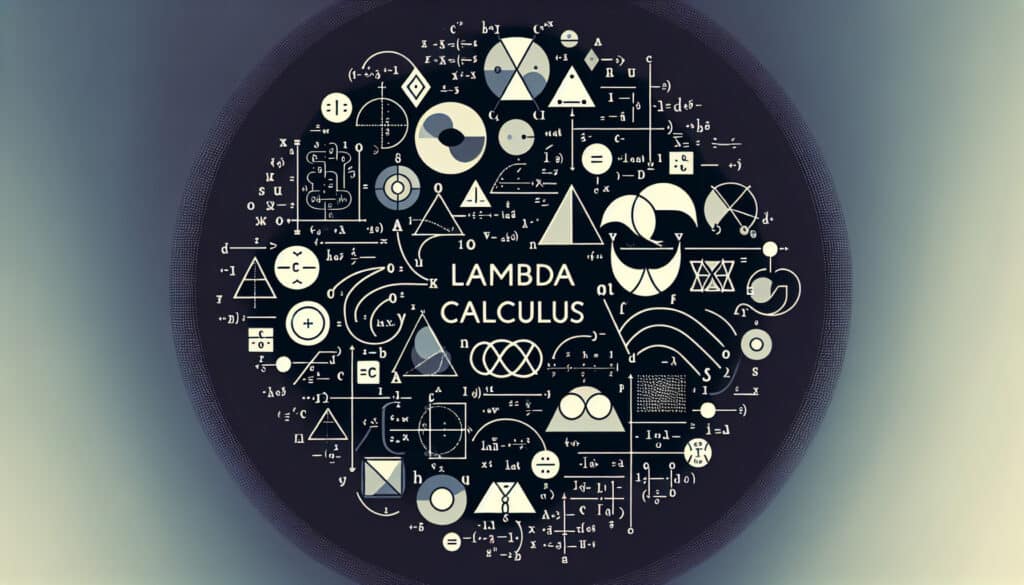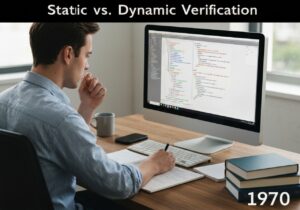Un sistema formale in logica matematica per esprimere il calcolo basato sull'astrazione di funzioni e sull'applicazione di legami e sostituzioni di variabili.
- Metodologie: Ergonomia, Gestione del rischio
Calcolo Lambda

Calcolo Lambda
- Intelligenza artificiale (IA), Fluidodinamica computazionale (CFD), Sistemi algebrici computerizzati (CAS), Progettazione per la produzione additiva (DfAM), Pensiero progettuale, Apprendimento automatico, Rete neurale, Ingegneria del software
Obiettivo:
Come si usa:
- Un quadro teorico per il calcolo basato sul concetto di funzione. Viene utilizzato in informatica per studiare le proprietà dei programmi e per progettare nuovi linguaggi di programmazione.
Professionisti
- Fornisce un quadro potente ed elegante per il calcolo; ha avuto un profondo impatto sullo sviluppo dell'informatica.
Contro
- Può essere astratto e difficile da capire; non è direttamente applicabile alla maggior parte dei compiti pratici di programmazione.
Categorie:
- Ingegneria
Ideale per:
- Teoria fondamentale dell'informatica, utilizzata nella progettazione dei linguaggi di programmazione e nello studio della computabilità.
Lambda Calculus serves multiple applications across various domains in computer science, influencing both theoretical and practical aspects of programming and software development. Primarily, its utilization can be seen in functional programming languages such as Haskell, Lisp, and Scala, where it influences the design and implementation of language features like first-class functions and lazy evaluation. Industries such as telecommunications, finance, and artificial intelligence leverage its principles to build robust algorithms that enhance performance and optimize function composition. During the early phases of software development, particularly in requirements analysis and system design, Lambda Calculus provides a rigorous framework for formal verification and reasoning about program behavior. Teams involved in this methodology may consist of software engineers, computer scientists, and domain experts who collaborate to ascertain the computational efficiency of algorithms and the correctness of program outcomes. As new paradigms like cloud computing and distributed systems emerge, the principles rooted in Lambda Calculus continue to guide the evolution of programming practices, emphasizing the importance of abstraction and mathematical rigor in crafting scalable and maintainable codebases. Additionally, it encourages the exploration of type systems and formal methods, inviting researchers and practitioners to address challenges in ensuring software reliability and security.
Fasi chiave di questa metodologia
- Define the syntax of functions and expressions in the language.
- Establish the rules for function application and variable binding.
- Develop a method for beta reduction to simplify expressions.
- Implement alpha conversion to avoid variable name clashes.
- Create means to express recursion and higher-order functions.
- Introduce types for functions to enhance expressiveness and safety.
- Evaluate the computational properties such as normal forms and decidability.
- Extend the calculus for specific programming constructs as needed.
Suggerimenti per i professionisti
- Utilize combinatory logic principles to optimize functional program design, promoting code reusability and succinctness.
- Explore the Curry-Howard correspondence to deepen understanding of type systems and their relation to logical proofs, enhancing language design.
- Investigate fixed-point combinators in order to implement recursion within lambda calculus, improving the expressiveness of functional programming languages.
Leggere e confrontare diverse metodologie, raccomandiamo il
> Ampio archivio di metodologie <
insieme ad altre 400 metodologie.
I vostri commenti su questa metodologia o ulteriori informazioni sono benvenuti su sezione commenti qui sotto ↓ , così come tutte le idee o i link relativi all'ingegneria.
Contesto storico
1828
1850
1854
1854
1911
1928
1950
1827
1848
1850
1854
1895
1914
1943
1970
(se la data non è nota o non è rilevante, ad esempio "meccanica dei fluidi", viene fornita una stima approssimativa della sua notevole comparsa)















Post correlati
Questionari sul disagio muscoloscheletrico
Test multivariati (MVT)
Analisi di regressione multipla
Sistemi di cattura del movimento
Metodo MoSCoW
Test mediano dell'umore